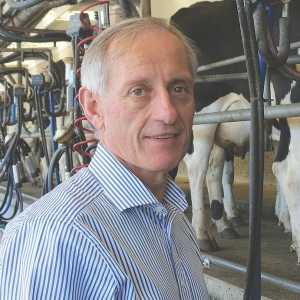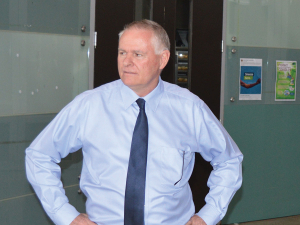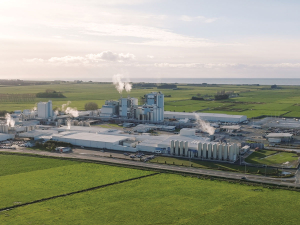Three months in his new role, he is ringing changes. For example, he has appointed deputy director-general Roger Smith to head MPI’s operation in China and is about to appoint two more staff there. He’s also adding staff to other key diplomatic posts in countries where market access is an issue.
Dunne told Rural News the “alignment process” is to meet the huge expectations and demands on his organisation. MPI and its previous incarnations have undergone almost constant restructuring for 25 years, but Dunne denies this is the case with the current moves.
“I don’t call it a restructuring and the staff don’t see it that way,” he says. “Normally restructuring is something driven by cost pressure and other demands and generally results in a downsizing.
“Out of this exercise we are increasing the head count in MPI by small numbers and few people are seriously affected. What we aim to do is align the components of what we do and make sure we are getting the best value out of it given the pressure we now know the organisation has to face. As a result of this process there will be less ‘silo-isation’ and better awareness of who we are.”
Dunne last week briefed staff about his plans and says this will continue for the next few weeks.
Since he took up his new role, Dunne has spent a fair amount of time out of his office in the capital – meeting staff and stakeholders and getting firsthand feedback on MPI. Apart from the obvious issues such as China, the feedback has generally been positive, he says.
The massive increase in primary exports has put extra pressure on MPI from stakeholders, especially in dealing with the many regulations MPI administers – said to exceed those of any other government department.
“I have found people are very willing to engage and get beyond the WPC inquiry, the issues we had last year with meat and other matters. We are getting into a much better space and… there is willingness to take part into taking MPI forward.”
Dunne is planning to embed stakeholders in the organisation via a new ‘stakeholder advisory group’ (STAG) that will help set strategic direction of MPI.
“The group will have five permanent members and another five that will rotate to give everyone an opportunity to be a part of it. The big strategic question we need answers on is ‘what is primary production going to look like in 2030?’. How are we going to tackle all the resource issues in a broad scope rather than focusing just on sector issues which will naturally enough become part of it?” Dunne says.
“We’ll have a range of people, but we haven’t settled yet on who will be in there. However, we will try and represent… everything from horticulture to the meat and dairy industries and other sectors.”
















